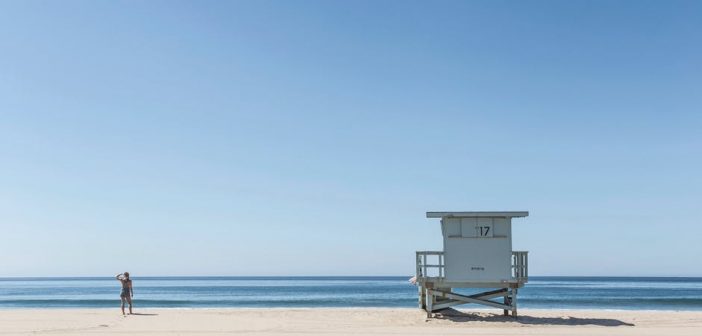Kids playing on the street or disappearing until they’re called for dinner are at thing of the past in our society, but now there’s lots of talk that perhaps we’ve gone too far the other way.
I always vowed I’d never be a helicopter parent: someone who hovers over their kids, never letting them make their own mistakes or learn to be fully themselves. We’re risk averse to the point of insanity and we’re producing young adults with a massive sense of entitlement who can’t tie their own shoes.
And while the “good old days” of my childhood in the 80s, when we would disappear on our bikes until dinner time, sound nice in hindsight, I know there were loads of dangers there too that we just don’t talk about any more. But I’m determined to find some middle ground with my kids. Let them learn to become who they truly are and learn how to be an effective member of society.
There are four key choices you can make to become a lifeguard parent:
1. Letting your kids choose to get in the water
A lifeguard doesn’t tell you to get in the water, or what you should wear to go swimming. They sit back and let you choose when you’re ready. You might tentatively stick your toe in and then decide to sit back down for a while. Or you might take a running jump and bomb dive right in the deep end. Either way, the lifeguard is there to help if you need them – not to judge your choices.
Of course, as parents, there are times we need to step in and help avert bad choices or impending disaster, but those times are few and far between. And when you do need to intervene, it’s important to offer coaching and suggestions, rather than taking over. Your child needs to learn to swim on their own and think critically about the choices they’re making.

2. Allowing your kids to choose their swimming method
A lifeguard never tells you to do breaststroke if you’re happily doing freestyle. And they don’t tell you to let go of the edge and float in the middle of the pool because they think it’s a superior swimming experience.
A big part of letting your child enter the pool in the first place is letting them deal with the water once they’re in. That means allowing them to deal with the consequences of their actions. If they never have to deal with the negative impact of a decision, they won’t understand why it was a bad decision in the first place.
As parents, it’s our job to help our children if they need it when dealing with big problems, but that doesn’t mean cleaning up their mess for them. Maybe just hand them the mop and be there to answer questions.
3. Trusting your child to know their limitations
A lifeguard assumes you know how to swim, unless they see you flailing about in the water, waving your hand. They may see you’re a beginner and that you’re just dog paddling in the shallows, but that doesn’t mean they’ll intervene. They’ll just let you go, and perhaps keen an eye on you in case you get into trouble.
You may swim too far from the edge a few times and take in a few mouthfuls of water. The lifeguard will respect you enough not to jump right in and make a scene. They can see you’ll be fine, and you’re learning from every stroke.

4. Saving your children with dignity
A lifeguard doesn’t angrily drag someone out of the pool, lecturing them all the way about the stupid stunt they just pulled. They get the swimmer out of danger, onto dry land, and they check to see they’re breathing.
That’s a lifeguard’s job. Just as, as a parent, it’s our job to ensure our kids are out of harm’s way. When we say “I told you so” what we’re doing is reinforcing the idea that they’re way of thinking is flawed and they can’t trust their own judgement. That’s a disaster for a child who is one day going to have to trust their judgement and stand on their own two feet.
A lifeguard is a safety net
As a child of the 70s and 80s, I grew up in the age of Jaws. I’m still terrified of the beach. But I know when I’m swimming at a beach with a lifeguard, I’m a bit bolder. A bit braver. Sometimes I even go in past my knees.
And that’s a lifeguard’s job: to provide that safety net that says “I’ve got you. Have fun, and if you get into trouble I’m here to dive in and pull you out.”
And isn’t that our job as parents? To nurture these independent little people who will one day be capable adults who can live their own lives without our help?
So I’m on lifeguard duty at my house. My kids know they can make their own decisions, but that I will never let anything truly terrible happen to them. Not on my watch.

